From asserting “all is well” on the floor of Lok Sabha only on March 7, the Modi government has had to order “keeping in abeyance the Indus Water Treaty of 1960”, declare the defence advisers in the Pakistani High Commission in New Delhi as persona non grata and close integrated check post at Wagah-Attari border on April 23, after Pahalgam, often dubbed the Switzerland of Kashmir, witnessed the gruesome massacre of 28 innocent tourists on April 22.
This nature of diplomatic action was not taken against Pakistan even in 2019 when Narendra Modi had raised his accusing finger towards Pakistan for the killing of more than 40 security personnel in a terror attack in Pulwama. His defence minister Rajnath Singh, while condemning the dastardly act, described the slaughter as a “religiously motivated attack”.
Kashmir has been witnessing terrorist attacks for the last 40 years, but it is quite intriguing that civilians have been targeted mostly during the BJP rule, whether it was during Atal Behari regime or currently, under the Modi dispensation. Kashmiris have seen brutal killings, but this time they reacted with shock, shame and anger against the latest tourists killing spree and hit the streets demanding firm action against the perpetrators. Clearly, they worry about the blowback from the Indian state as well as the beginning of fresh round of bloody massacres in the valley.
Kashmiris have lost hundreds of their kin in militant attacks and have also faced malicious vilification from Hindu zealots. But now they are not willing to tolerate any further design that could end up further ruining Kashmir’s already suffering economy. It was heart-warming to note slogans like “Not in my name” and “Terrorism is not acceptable” reverberated the valley. Several leading newspapers in the Valley printed their front pages in black to express grief.
Modi while carrying out demonetisation and abrogating Article 370 had promised to the nation, and more precisely to the people of Jammu and Kashmir, that these twin actions would completely finish off the reign of terror and terrorists from the ‘paradise on Earth’. But it proved to be a hollow boast. A J&K National Conference MP articulated the peoples’ feeling, saying April 22 massacre was another painful reminder that post-370 “normalcy” in Kashmir was only rhetoric, not reality.
Along with the people across the country, the people of valley are also busy trying to find out the reasons behind the attack. Outspoken public figures like former Jammu and Kashmir governor Satya Pal Mallick are scratching their heads decode the plot behind these heinous killings of the tourists in Pahalgam and also unravel the reasons for the failure of the intelligence agencies to keep track of the terrorists’ plan and exposing their plot before it could be executed.
Though the former Jammu and Kashmir Police chief Shesh Paul Vaid has tried to find a similarity between terrorist attack in Pahalgam and the gruesome massacre of Pulwama that took place in 2019, it has been vague. Quite intriguing that like other BJP leaders, he also draws parallels of the Pahalgam incident with the Hamas-led assault on Israel on October 7. It is obvious that saffron ecosystem and its cells have been striving to project Pahalgam massacre in a communalized lens as a fall out of Hindu-Muslim conflict.
The modus operandi of the crime tosses many uncomfortable questions into the public domain, the biggest of them being collective failure of the intelligence agencies. Only recently, Amit Shah had claimed that the intelligence operations under the watchful eyes of Indian James Bond, Ajit Doval, is of highest order. Even local newspapers were apprehensive of some action. Sources maintain a few days before the incident, chatter from an alleged terrorist based in PoK had been picked up that suggested the possibility of an attack. Why was the intelligence ignored?
Another observation: terrorists did not attack the security establishments. Even the security forces were not around when the terrorists struck. There are varied versions of the attack. While the Godi media feeds the information that terrorists asked the male tourists to remove their clothes before gunning them down, some say they fired from some distance and did not ask for removing the clothes. In any case, narrative to communalise the attack is already circulating in full-force. Their choice of targets creates the impression that they had targeted Pahalgam for giving vent to Hindu Muslim hate politics.
The intelligence failure also has another dimension. It is an open secret that RSS has penetrated the intelligence, security and police forces across the country. They have succeeded in saffronising the security forces. A close watch on the actions of the security forces would make it explicit that these agencies have been more concerned of preserving the communal interest of the saffron ecosystem, than identifying and collecting information on the true anti-national forces. True enough, not furnishing the information beforehand about the militant attack in Pahalgam, which killed 26 people, was a wilful failure of intelligence and security forces.
The argument put forward by some officials that the area had lesser deployment of security forces on the day of happening, though it was popular tourist spot with heavy tourist influx, is really inexplicable. Usually such areas are kept under intense security cover as tourists are always vulnerable to terrorist attacks. No country would like to expose common tourists to terrorist attacks.
An area with such a high number of tourist footfall obviously demands ensuring high quality of security as top priority. Besides being the tourist season, the government should have been more careful of their movements and activities. The attack took place in the Baisaran Valley, a serene spot known as ‘mini Switzerland’ for its stunning views of snow-capped peaks. Tourists were enjoying pony rides, when gunmen opened fire on them at around 2:30 p.m.
Going by the official feedback it appears that unlike other operations, the terrorists in Pahalgam, were not in a hurry to execute their plan. They sought to know name and religion of the visitors. They even ascertained whether the tourists were circumcised. In the past, they would usually descend at the place and fire indiscriminately at the target. Surprisingly during the entire operation, the security personnel were not seen at the scene. Obviously for carrying out this magnitude of operation the terrorists must had carried out survey of the area beforehand. Astonishingly, the security forces were not aware of any such exercise.
Astonishing within minutes of terrorists accomplishing the operation and fleeing the place, the intelligence agencies came out with the news that the operatives have been identified and their code names are Asif Fauji, Suleman Shah and Abu Talha. They belonged to The Resistance Front (TRF), a shadow outfit of Pakistan-based Lashkar-e-Taiba terror group. It is also said that TRF has been active in the valley since 2019. Naturally, Doval and his sleuths must be having significant info about them. But the way the name has been thrown in the public domain gives the impression that they do not know much of them.
While the country is agitated and seething with anger at the ghastly killing of 26 innocent tourists, the BJP MP Nishikant Dubey, who is amusingly described as the ‘pit-bull of Narendra Modi’, and had recently accused the Chief Justice of India, Sanjiv Khanna, of being responsible for “all civil wars in the country”, had dug out the unknown truth that Pahalgam incident was the creation of “Muslims” and pleaded for scrapping of Articles 26 and 29 which deal with freedom to manage religious affairs. He has got expertise in communalising politics. This call of Dubey is purely an attempt to distort the fact and divert the attention of the people from truth. He even said: “Shame on secular leaders, Pakistan-occupied Kashmir will be ours. Have patience, this is Modi’s government, whose Home Minister is Amit Shah ji. It is time to end Articles 26 to 29 of the Constitution.”
Modi cut short his visit to Saudi Arabia just after getting the news of terrorist action in Pahalgam and rushed back to India to share the agony of the family members of the bereaved. But when the whole country was mourning the loss of lives of our 40 jawans in Pulwama terrorist attack, which happened at 3.10 pm in February 2019, Modi was busy in shooting for a film at the Jim Corbett National Park till 6.40 in the evening. But this time Modi went all out. During Pulwama attack he had forgotten the compulsions and ethos of “raj dharma”, but it was the call of the “raj dharma” that made him rush back.
Shortly, the Modi government made hurried decisions of terminating diplomatic relations and blocking the border, have been quite perplexing. Moreover, it has gained currency in the political circle for two reasons: first, assembly elections to states Bihar and Bengal will be held in a short time and the BJP must win the elections as Modi has staked his personal credibility and image. Second, the conflict of supremacy between RSS and Modi has reached the stage of no return. Through a tough action against Pakistan, Modi intends to send the message that he is the real iron man capable of ruling India. (IPA Service)
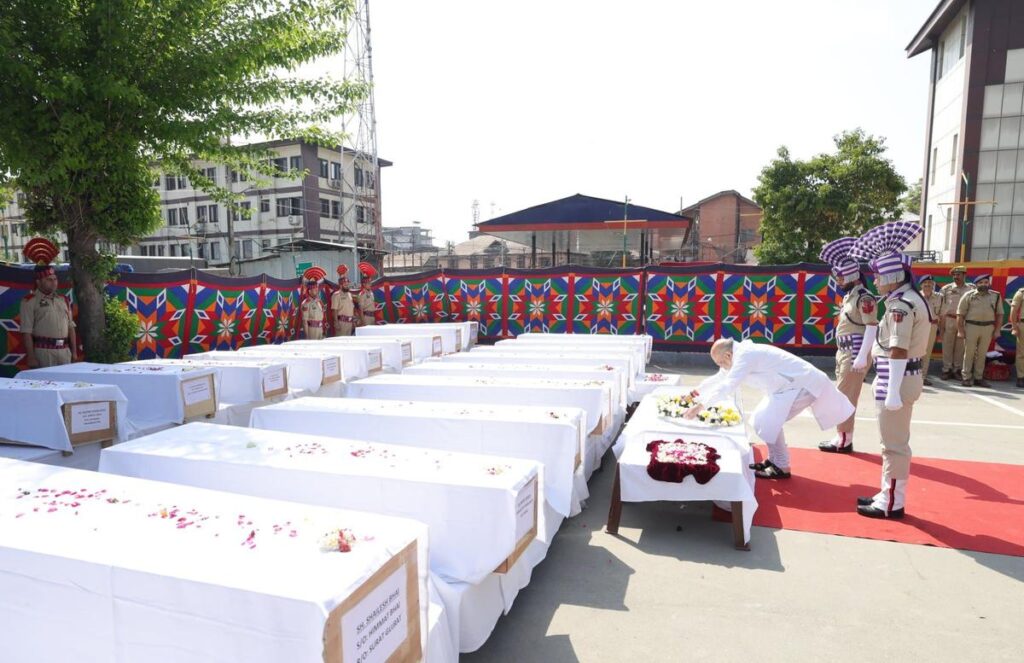
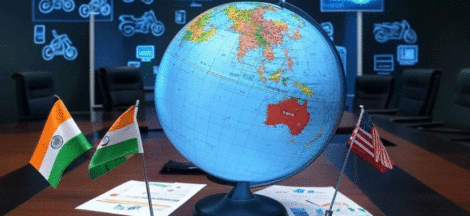
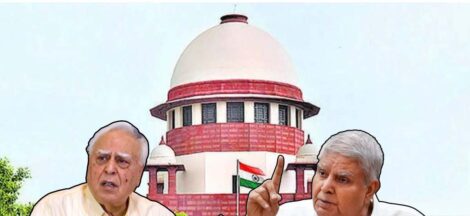
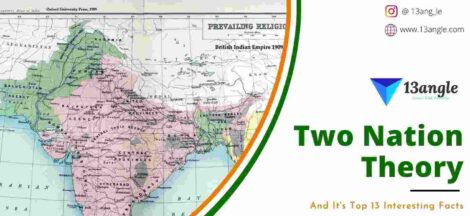
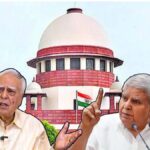 Vice President Dhankar And BJP Leaders Are Assaulting The Powers Of Supreme Court
Vice President Dhankar And BJP Leaders Are Assaulting The Powers Of Supreme Court 